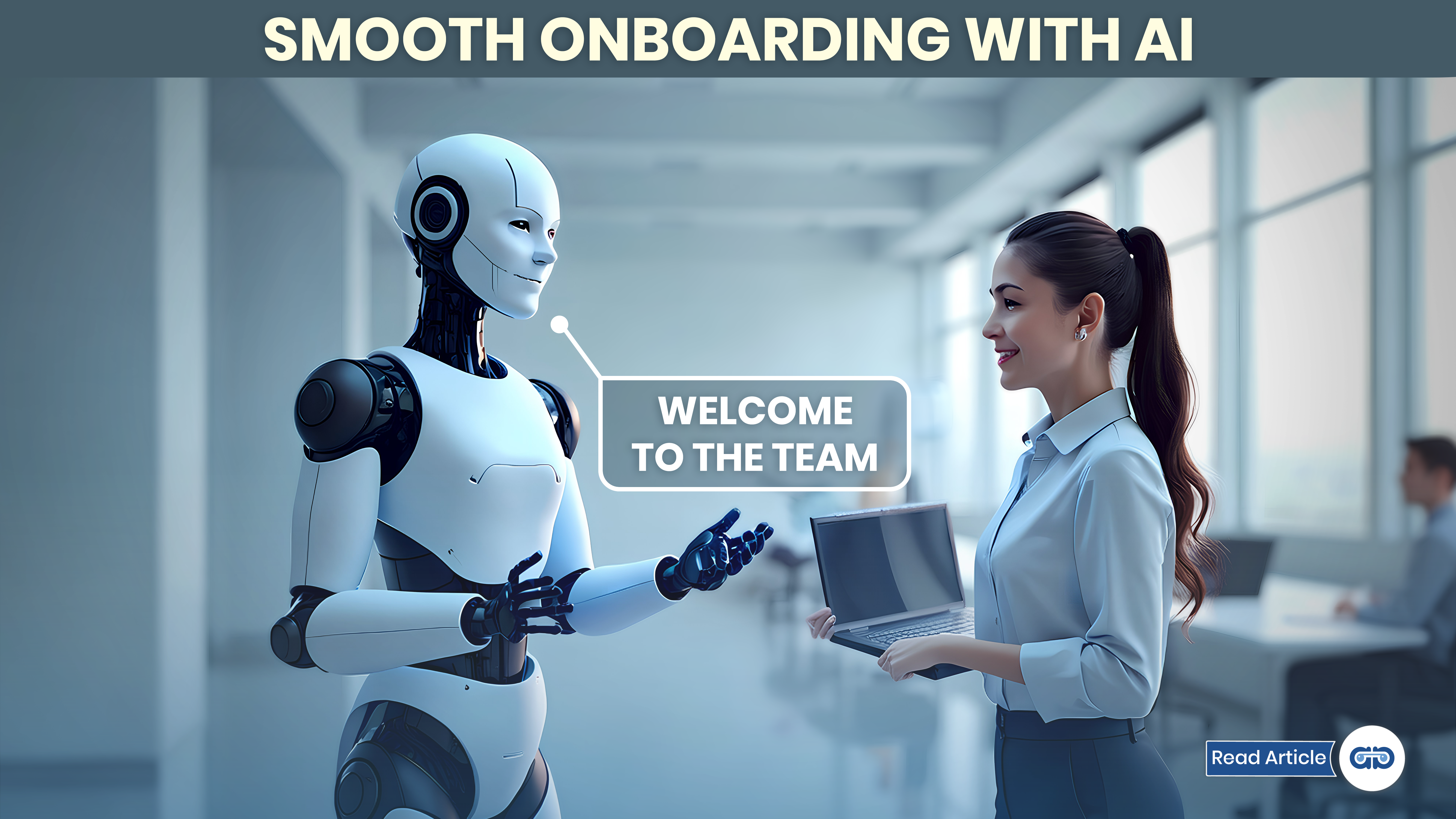Starting a new job is both exciting and overwhelming. For employees, the first few weeks often involve navigating unfamiliar systems, filling out endless paperwork, and trying to make sense of company policies. For HR teams, onboarding means juggling dozens of repetitive tasks, from collecting documents and provisioning tools to scheduling training sessions. The result? Delays, inconsistent experiences, and frustrated new hires.
This is where AI agents are making a measurable difference. Unlike traditional chatbots that provide scripted responses, AI agents can automate repetitive workflows, answer questions in real time, and integrate across HR and IT systems. More importantly, they deliver consistent and personalized onboarding experience at scale It is something that’s difficult to achieve manually.
Why Onboarding Needs Transformation
Traditional onboarding typically involves multiple stakeholders, such as HR, IT, managers, and compliance teams, working in silos. Employees are often left juggling forms, credentials, and policies, while HR struggles with administrative tasks instead of focusing on cultural integration and engagement.
Some key challenges include:
• Time-consuming paperwork: Filling and verifying employment forms, identity documents, and tax-related submissions take too much time.
• Information overload: New hires often receive large amounts of information at once, making it hard to absorb.
• Delayed access to tools: IT setup for email, collaboration platforms, and business applications is often not ready on day one.
• Inconsistent experiences: Manual processes result in varied onboarding quality across departments or locations.
These inefficiencies can lead to disengagement. AI agents offer a scalable and intelligent way to bridge these gaps.
How AI Agents Automate Onboarding
AI agents go beyond simple chatbots. They leverage natural language processing (NLP), robotic process automation (RPA), and machine learning (ML) to handle repetitive tasks, provide contextual responses, and integrate with enterprise systems. Here’s how they transform onboarding:
1. Automating Document Collection and Verification
AI agents can guide new hires through submitting ID proofs, resumes, and compliance forms. With OCR (optical character recognition) and ML, they can automatically extract data, validate documents, and flag inconsistencies, reducing HR’s workload.
2. Personalized Information Delivery
Instead of overwhelming employees with bulk handbooks, AI agents provide bite-sized, contextual information when asked. For example:
• “What’s the leave policy?”
• “Where do I submit travel expenses?”
This ensures employees access relevant answers instantly, improving knowledge retention.
3. Streamlining IT Setup
AI agents integrated with ITSM tools like ServiceNow or JIRA can trigger workflows for provisioning laptops, creating email accounts, and granting access to tools. They notify employees once setups are complete, ensuring productivity from day one.
4. Training and Learning Recommendations
Based on role, department, and skill requirements, AI agents recommend tailored learning modules and track completion. For example, a marketing associate may automatically receive training links on CRM usage or brand guidelines.
5. Continuous Engagement and Feedback
AI agents regularly check in with new hires, “How comfortable are you with your role so far?” or “Do you need help connecting with your manager?”. Such pulse checks provide HR with real-time sentiment insights to improve onboarding programs.
Benefits of AI-Driven Onboarding
Organizations adopting AI agents for onboarding are seeing significant improvements:
1. Efficiency Gains
Manual processes like form-filling, data entry, and ticket creation are automated, reducing HR’s workload and administrative costs.
2. Consistency
AI ensures every employee receives the same structured onboarding experience, regardless of location or department.
3. Employee Experience
By reducing friction and delays, AI creates a positive first impression, increasing engagement and retention.
4. Data-Driven Insights
AI captures data across interactions, helping HR teams identify bottlenecks and refine onboarding strategies.
5. Scalability
Whether onboarding 10 employees or 1,000, AI agents can handle volume without compromising quality.
Best Practices for Implementing AI Agents in Onboarding
Implementing AI agents is not just about plugging in technology; it’s about designing a thoughtful, employee-centric experience. To get the best results, organizations should follow a structured approach that balances automation with human interaction.
Integrate with Core Systems
Connect AI agents with HRIS (like Workday, SAP SuccessFactors), ITSM tools, and learning platforms to enable end-to-end automation.
Start Small, Then Scale
Begin with automating repetitive processes like document collection, FAQs, or IT access, before moving into advanced personalization.
Balance Automation with Human Touch
AI should not replace human connection. HR managers and mentors must complement automation with relationship building.
Ensure Compliance and Security
Since onboarding involves sensitive data, ensure AI agents comply with GDPR, SOC 2, and other security standards.
Track Metrics
Measure success with KPIs such as onboarding completion rate, time-to-productivity, and employee satisfaction scores.
The Future of Onboarding with AI Agents
AI agents are evolving from simple task executors into proactive guides that shape the entire employee journey. In the near future, they will be able to predict employee needs based on behavioral data, automate career pathing right from day one, and integrate with voice assistants for more natural, intuitive interactions. They will also use sentiment analysis to personalize engagement strategies, ensuring every new hire feels supported and connected. As workplaces continue to become more distributed and hybrid, AI-driven onboarding will turn into a necessity.

